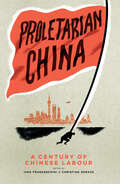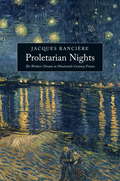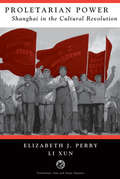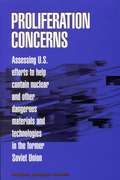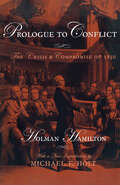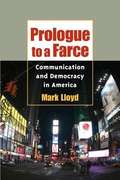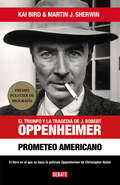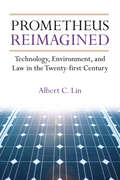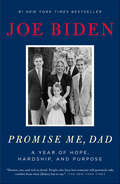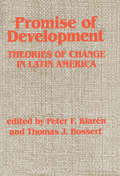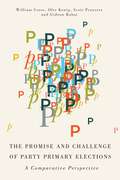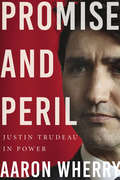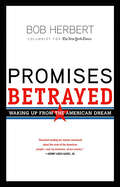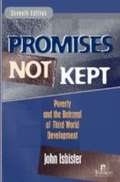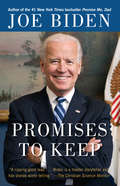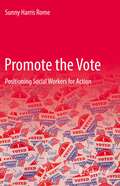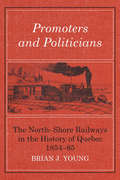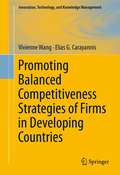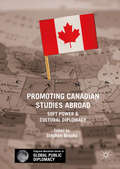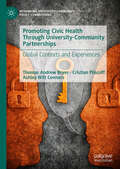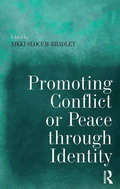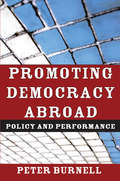- Table View
- List View
Proletarian China: A Century of Chinese Labour
by Ivan Franceschini Christian SoraceA century of complex relations between Communists and workers in ChinaIn 2021, the Chinese Communist Party celebrated a century of existence. Since the Party&’s humble beginnings in the Marxist groups of the Republican era to its current global ambitions, one thing has not changed for China&’s leaders: their claim to represent the vanguard of the Chinese working class. Spanning from the night classes for workers organised by student activists in Beijing in the 1910s to the labour struggles during the 1920s and 1930s; from the turmoil of the Cultural Revolution to the social convulsions of the reform era to China&’s global push today, this book reconstructs the contentious history of labour in China from the early twentieth century to this day (and beyond). This will be achieved through a series of essays penned by scholars in the field of Chinese society, politics, and culture, each one of which will revolve around a specific historical event, in a mosaic of different voices, perspectives, and interpretations of what constituted the experience of being a worker in China in the past century.Contributors: Corey Byrnes, Craig A. Smith, Xu Guoqi, Zhou Ruixue, Lin Chun, Elizabeth J. Perry, Tony Saich, Wang Kan, Gail Hershatter, Apo Leong, S.A. Smith, Alexander F. Day, Yige Dong, Seung-Joon Lee, Lu Yan, Joshua Howard, Bo Ærenlund Sørensen, Brian DeMare, Emily Honig, Po-chien Chen, Yi-hung Liu, Jake Werner, Malcolm Thompson, Robert Cliver, Mark W. Frazier, John Williams, Christian Sorace, Zhu Ruiyi, Ivan Franceschini, Chen Feng, Ben Kindler, Jane Hayward, Tim Wright, Koji Hirata, Jacob Eyferth, Aminda Smith, Fabio Lanza, Ralph Litzinger, J onathan Unger, Covell F. Meyskens, Maggie Clinton, Patricia M. Thornton, Ray Yep, Andrea Piazzaroli Longobardi, Joel Andreas, Matt Galway, Michel Bonnin, A.C. Baecker, Mary Ann O&’Donnell, Tiantian Zheng, Jeanne L. Wilson, Ming-sho Ho, Yueran Zhang, Anita Chan, Sarah Biddulph, Jude Howell, William Hurst, Dorothy J. Solinger, Ching Kwan Lee, Chloé Froissart, Mary Gallagher, Eric Florence, Junxi Qian, Chris King-chi Chan, Elaine Sio-Ieng Hui, Jenny Chan, Eli Friedman, Aaron Halegua, Wanning Sun, Marc Blecher, Huang Yu, Manfred Elfstrom, Darren Byler, Carlos Rojas, Chen Qiufan.
Proletarian Nights
by Jacques RanciereProletarian Nights, previously published in English as Nights of Labor and one of Rancière's most important works, dramatically reinterprets the Revolution of 1830, contending that workers were not rebelling against specific hardships and conditions but against the unyielding predetermination of their lives. Through a study of worker-run newspapers, letters, journals, and worker-poetry, Rancière reveals the contradictory and conflicting stories that challenge the coherence of these statements celebrating labor.This updated edition includes a new preface by the author, revisiting the work twenty years since its first publication in France.From the Trade Paperback edition.
Proletarian Power: Shanghai In The Cultural Revolution
by Elizabeth PerryThis pathbreaking book offers the first in-depth study of Chinese labor activism during the momentous upheaval of the Cultural Revolution. Arguing that labor was working at cross purposes, the authors explore three distinctive and different forms of working-class protest: rebellion, conservatism, and economism. Drawing upon a wealth of heretofore inaccessible archival sources, the authors probe the divergent political, psychocultural, and socioeconomic strains within the Shanghai labor movement, convincingly illustrating the complexity of working-class politics in contemporary China. }This pathbreaking book offers the first in-depth study of Chinese labor activism during the momentous upheaval of the Cultural Revolution. The authors explore three distinctive forms of working-class protest: rebellion, conservatism, and economism. Labor, they argue, was working at cross-purposes through these three modes of militancy promoted by different types of leaders with differing agendas and motivations. Drawing upon a wealth of heretofore inaccessible archival sources, the authors probe the divergent political, psychocultural, and socioeconomic strains within the Shanghai labor movement. As they convincingly illustrate, the multiplicity of worker responses to the Cultural Revolution cautions against a one-dimensional portrait of working-class politics in contemporary China. }
Proliferation Concerns: Assessing U.S. Efforts to Help Contain Nuclear and Other Dangerous Materials and Technologies in the Former Soviet Union
by National Research Council StaffThe successor states of the former Soviet Union have enormous stocks of weapons-usable nuclear material and other militarily significant commodities and technologies. Preventing the flow of such items to countries of proliferation concern and to terrorist groups is a major objective of U.S. national security policy. This book reviews the effectiveness of two U.S. programs directed to this objective. These programs have supported the efforts of Russia, Ukraine, Belarus, and Kazakstan in upgrading the physical protection, control, and accountability of highly enriched uranium and plutonium and strengthening systems to control the export of many types of militarily sensitive items.
Proliferation of Weapons- and Dual-Use Technologies: Diplomatic, Information, Military, and Economic Approaches (Advanced Sciences and Technologies for Security Applications)
by Margaret E. KosalThis book explores and analyzes the rapid pace of technological evolution in diplomatic, information, military, and economic sectors, which has contributed to a dynamic international policy environment. Global political stability is greatly influenced by innovations originating from numerous sources, including university labs, the technology sector, and military research. Collectively, these innovations guide the movement of people, ideas, and technology that in turn affect the international balance of power. The objective of this volume is to develop new insights into how the proliferation of innovative ideas, low-cost weapons, and dual-use technologies impact the changing global security landscape. Innovative and dual-use technologies can be used for beneficial purposes or defensive purposes. Alternatively they may be appropriated or employed for nefarious purposes by hostile military powers and non-state actors alike. Such actions can threaten global security and stability. As the complexity of technological innovations continues to increase, existing control mechanisms such as international regulations and security arrangements may be insufficient to stem the tide of proliferation over time. As such, this works seeks to assess and present policy solutions to curtail the threat to global stability posed by the proliferation of weapons and dual-use technology.
Prologue to Conflict: The Crisis & Compromise of 1850
by Holman HamiltonThis account of the failed Compromise of 1850 a decade before the Civil War “has all the suspense of a novel . . . incisive and provocative” (The Journal of American History).In 1850, America was expanding rapidly westward as countless citizens went in search of land, opportunity—and, thanks to the gold rush in California, fortune. With settlements growing into towns and towns growing into cities, there was an urgent need for state and local government.But the simmering tension over slavery that existed between North and South would boil over as the effort to draw boundaries and establish civil administration proceeded. The slave states were concerned about the delicate balance of power tipping in the North’s favor, while the free states were wary about an expansion of slavery. The debate in the United States Senate lasted for months, and the nation waited anxiously for a resolution. This book tells the story of these events and analyzes their political complexities—and how they served as a dramatic prologue to the civil war that would erupt a decade later.
Prologue to a Farce: Communication and Democracy in America
by Mark LloydInspired by Madison's observation, Mark Lloyd has crafted a complex and powerful assessment of the relationship between communications and democracy in the United States. In Prologue to a Farce, he argues that citizens' political capabilities depend on broad public access to media technologies, but that the U.S. communications environment has become unfairly dominated by corporate interests. Drawing on a wealth of historical sources, Lloyd demonstrates that despite the persistent hope that a new technology (from the telegraph to the Internet) will rise to serve the needs of the republic, none have solved the fundamental problems created by corporate domination. After examining failed alternatives to the strong publicly-owned communications model, such as anti-trust regulation, the public trustee rules of the Federal Communications Commission, and the under-funded public broadcasting service, Lloyd argues that we must recreate a modern version of the Founder's communications environment, and offers concrete strategies aimed at empowering citizens.
Prometeo americano: El triunfo y la tragedia de J. Robert Oppenheimer
by Kai Bird Martin J. SherwinPremio Pulitzer 2006 National Book Critics Circle Award 2005 Duff Cooper Prize 2008 La biografía definitiva de Oppenheimer, el padre de la bomba atómica y una de las figuras más emblemáticas del siglo XX. El 16 de julio de 1945, en el desierto de Nuevo México, se detonaba en secreto la primera bomba atómica. Impactado por el poder destructivo de su creación, J. Robert Oppenheimer, director del Proyecto Manhattan, se comprometería desde entonces a luchar contra el desarrollo de la bomba de hidrógeno y contra la guerra nuclear. Sospechoso de comunista para los Estados Unidos de la era McCarthy, fue perseguido por el FBI, calumniado como espía de la Unión Soviética y obligado a dimitir de cualquier función pública. Su vida privada fue arrastrada del mismo modo hacia el esperpento; su casa fue allanada con micrófonos ocultos, y su teléfono, intervenido. No sería hasta 1963 que el presidente Kennedy lo rehabilitaría y, con ello, su figura obtendría otro cariz para los ciudadanos del mundo entero. Treinta años de entrevistas a familiares, amigos y colegas; de búsqueda en archivos del FBI; de análisis de las cintas con discursos e interrogatorios, y de hallazgos de documentos privados del físico nuclear dieron como resultado este monumental libro. Una biografía de una enorme minuciosidad que ofrece una visión íntima del científico más famoso de su generación; una de las figuras icónicas del siglo xx para quien el triunfo y la tragedia se unieron en un nudo gordiano. Críticas:«Se lee como un thriller, cautivador y aterrador por momentos. Sospecho que este año no aparecerá una biografía más absorbente ni, dados los peligros a los que nos enfrentamos, más importante que esta».John Carey, Sunday Times «La biografía definitiva [...] La vida de Oppenheimer no nos influye; nos persigue».Newsweek «Todas las obras anteriores sobre este tema quedan, por decirlo de la manera más amable, despedazadas, frente a este libro que es metafórica y literalmente monumental».Mark Lawson, Esquire «Esta imponente biografía, resultado de veinticinco años de investigación, reevalúa la figura de Oppenheimer, y ofrece uno de los retratos más complejos del físico hasta la fecha».The New Yorker «Un libro esencial».Time «Una obra de voluminosa erudición y lúcida perspicacia que une el retrato del multifacético Oppenheimer con la aguda comprensión de su naturaleza».The New York Times «Un relato magistral del ascenso y la caída de Oppenheimer, situado en el contexto de las turbulentas décadas de la transformación de Estados Unidos. Es un tour de force».Los Angeles Times Book Review «La primera biografía que da cuenta de la extraordinaria complejidad de Oppenheimer. Se erige como un Everest entre las montañas de libros sobre el proyecto de la bomba atómica y Oppenheimer, y es un logro que tal vez no será superado ni igualado».The Boston Globe «Excepcional y documentada con exhaustividad. Kai Bird y Martin Sherwin no solo explican la deslumbrante, emblemática y denigrante carrera de Oppenheimer, sino que también iluminan las tensiones de la cultura estadounidense que conformaron las nociones actuales de liberalismo y reacción».The Atlantic Journal
Prometheus Reimagined: Technology, Environment, and Law in the Twenty-first Century
by Albert C. LinTechnologies such as synthetic biology, nanotechnology, artificial intelligence, and geoengineering promise to address many of our most serious problems, yet they also bring environmental and health-related risks and uncertainties. Moreover, they can come to dominate global production systems and markets with very little public input or awareness. Existing governance institutions and processes do not adequately address the risks of new technologies, nor do they give much consideration to the concerns of persons affected by them. Instead of treating technology, health, and the environment as discrete issues, Albert C. Lin argues that laws must acknowledge their fundamental relationship, anticipating both future technological developments and their potential adverse effects. Laws should encourage international cooperation and the development of common global standards, while allowing for flexibility and reassessment.
Promise Me, Dad: A Year of Hope, Hardship, and Purpose
by Joe BidenThe instant #1 New York Times bestseller: From President Joe Biden, a deeply moving memoir about the year that would change both a family and a country.In November 2014, thirteen members of the Biden family gathered on Nantucket for Thanksgiving, a tradition they had been celebrating for the past forty years. But this year felt different from all those that had come before. Joe and Jill Biden’s eldest son, Beau, had been diagnosed with a malignant brain tumor fifteen months earlier, and his survival was uncertain. “Promise me, Dad,” Beau had told his father. “Give me your word that no matter what happens, you’re going to be all right.” Joe Biden gave him his word.Promise Me, Dad chronicles the year that followed, which would be the most momentous and challenging in Joe Biden’s extraordinary life and career. As vice president, Biden traveled more than a hundred thousand miles that year, across the world, dealing with crises in Ukraine, Central America, and Iraq. When a call came from New York, or Capitol Hill, or Kyiv, or Baghdad—“Joe, I need your help”—he responded. For twelve months, while Beau fought for and then lost his life, the vice president balanced the twin imperatives of living up to his responsibilities to his country and his responsibilities to his family. And never far away was the insistent and urgent question of whether he should seek the presidency in 2016.Writing with poignancy and immediacy, Promise Me, Dad is a story of how family and friendships sustain us and how hope, purpose, and action can guide us through the pain of personal loss into the light of a new future.
Promise Of Development: Theories Of Change In Latin America
by Peter F KlarenIn recent years Latin Americanists have been among the most innovative and productive theorists about the uneven process of development. This collection of substantial selections from some of the most prominent theorists in the field represents a scholarly consolidation and reassessment of the controversies concerning the development of Latin America.Beginning with a historiographic overview, the editors emphasize the origins, evolution, and historical context of the development of each theoretical school (modernization, dependency and Marxism, corporatism, and bureaucratic authoritarianism), then present key selections drawn from the writings of major theorists, organized by school. Each selection is prefaced with a short editorial introduction that highlights the central themes to follow. A concluding section outlines the main debates surrounding each school and suggests new directions in theoretical development that may arise from criticism of the theories of authoritarianism and the search for democratic processes of development. The book's usefulness as a text is further enhanced by selected bibliographies that contain further readings on each development theory.Here is a single source for Latin Americanists who hope to interest and instruct their students in the rich theoretical traditions and debates in Latin American studies. It also provides a strong core volume for other courses on developing areas.
Promise and Challenge of Party Primary Elections: A Comparative Perspective
by Gideon Rahat Ofer Kenig Scott Pruysers William P. CrossWhile primary elections are most often associated with presidential candidates in the United States, similar methods for selecting party leaders and candidates are becoming increasingly common in parliamentary democracies around the world. The Promise and Challenge of Party Primary Elections introduces the first comprehensive examination of both the concept and the practice of primary elections outside of the United States. By offering a clear definition of primary elections and examples of their types, the authors deliver the tools needed for comparative analysis within and across diverse party systems. Focusing their attention on Canada and Israel - two early adopters of primary elections - the authors unveil the most pressing challenges of conducting internal elections, including questions of financing, monitoring and oversight, and the recruitment of new party members. At the same time, the book highlights the democratic benefits of primaries through direct and widespread participation in internal party decision making. Drawing upon the experience of parties with a long history of primary elections, The Promise and Challenge of Party Primary Elections offers valuable lessons and insights for parties around the world in search of more open and inclusive democratic practices.
Promise and Peril: Justin Trudeau in Power
by Aaron WherryAn inside, in-depth look at the leadership of Justin Trudeau, by a veteran political journalist A must-read for all Canadians before the next federal electionJustin Trudeau came to power on the promise of “hope and hard work” and a pledge to seek a common good for all Canadians. From the outset, his critics called him naive, inexperienced and a danger to the economy. His proponents have touted his intentions for the middle class, the environment and refugees, which they argue have moved forward real change despite challenges and criticism. Veteran political journalist Aaron Wherry has extensively interviewed decision-makers, influencers and political insiders, from the prime minister’s closest advisors to cabinet ministers to the prime minister himself, to provide the most in-depth, inside examination—beyond the headlines and the tweets—of how Justin Trudeau has performed on his promises for Canada.Promise and Peril: Justin Trudeau in Power explores how the Trudeau government has succeeded or failed in its biggest commitments—resource development, immigration, climate change, trade, reconciliation—against a backdrop of economic uncertainty, global political tumult and the roar of populist revolt. It reveals what was happening behind the scenes during the government’s most crucial and public moments, including:· the NAFTA negotiations· the infamous Trump tweets at the G7 summit· that island vacation· the SNC-Lavalin affairPromise and Peril is a must-read for all voters before the next election. It examines whether a politician who came to office with immense potential has measured up to expectations—and what is at stake for Canada’s future at home and abroad.
Promise and Power: The Life and Times of Robert McNamara
by Deborah ShapelyA comprehensive biography of Robert S. McNamara follows his road to Secretary of Defense, where, during the 1960s, he shaped nuclear policy and orchestrated U. S. involvement in Vietnam.
Promised Land, Crusader State: The American Encounter With The World Since 1776
by Walter A. McdougallEntertaining, fast-paced, and learned, it exposes the myths that obscure the real meaning of such concepts as American Exceptionalism, Isolationism, Manifest Destiny, Wilsonianism, and Containment. Taking up the torch of George Kennan, McDougall proposes nothing less than to cleanse the vocabulary of our sterile post-Cold War debate on America's role in the world. Looking back over two centuries, he draws a striking contrast between America as a Promised Land, a vision that inspired the "Old Testament" of our diplomatic wisdom through the nineteenth century, and the contrary vision of America as a Crusader State, which inspired the "New Testament" of our foreign policy beginning at the time of the Spanish-American War and reaching its fulfillment in Vietnam.
Promises Betrayed: Waking Up from the American Dream
by Bob HerbertThe award-winning New York Times op-ed columnist probes the widening gap between American ideals and American realities, and urges us to do something about itBob Herbert is the conscience of the op-ed page of The New York Times, and his work is characterized by a strong moral vision and a deep understanding of the human costs of political decisions. From partisan politics to popular culture, from race relations to criminal justice, few journalists bring to life so movingly the stories of ordinary people caught between the American dream and American realities. Whether it is the inherent injustice of the death penalty or the demagoguery of the war on terrorism, Herbert questions whether we are truly upholding our ideals or merely giving them lip service.In Promises Betrayed, Herbert makes the case that in recent years America has too often failed to live up to its creed of fairness and justice in the lives of working people, racial minorities, children, and others not among the powerful. He introduces us to real people facing real problems and trying to maintain their dignity along the way, and he blows the whistle on imperious public officials who think the rules of common decency do not apply to them. Herbert's tenacious reporting has resulted in the overturning of many wrongful convictions and the release of dozens of innocent people from prison. In these and so many other ways, Herbert keeps us all honest and lives up to the journalist's credo: to comfort the afflicted and afflict the comfortable.
Promises Not Kept: Poverty and The Betrayal of Third World Development (Seventh Edition)
by John IsbisterThe seventh edition of this perennial stalwart of the Kumarian Press list continues the discussion of the new American hegemony and the war on terror that began with the previous edition. In particular, Isbister addresses changes in international politics and the impact on the global order of the US-led military operations in Afghanistan and Iraq. The author also focuses on major initiatives, such as the UN’s Millennium Development Goals, to confront the issue of world poverty. As with all editions of this vibrant text, Isbister writes with clarity and passion, not only about failed promises, but about hope, human potential, and the belief that a just and equitable world system is attainable.
Promises to Keep: On Life and Politics
by Joe Biden"Nearly forty years after I first got involved, I remain captivated by the possibilities of politics and public service. In fact, I believe that my chosen profession is a noble calling. That's why I wanted to be a part of it."-Joe BidenAs a United States senator from Delaware since 1973, Joe Biden has been an intimate witness to the major events of the past four decades and a relentless actor in trying to shape recent American history. He has seen up close the tragic mistake of the Vietnam War, the Watergate and Iran-contra scandals, the fall of the Berlin Wall, the reunification of Germany, the disintegration of the Soviet Union, the aftermath of the 9/11 attacks, a presidential impeachment, a presidential resignation, and a presidential election decided by the Supreme Court. He's observed Nixon, Ford, Carter, Reagan, Clinton, and two Bushes wrestling with the presidency; he's traveled to war zones in Europe, the Middle East, and Africa and seen firsthand the devastation of genocide. He played a vital role by standing up to Ronald Reagan's effort to seat Judge Robert Bork on the Supreme Court, fighting for legislation that protects women against domestic violence, and galvanizing America's response (and the world's) to Slobodan Milosevic's genocidal march in the Balkans. In Promises to Keep, Biden reveals what these experiences taught him about himself, his colleagues, and the institutions of government.With his customary candor, Biden movingly recounts growing up in a staunchly Catholic multigenerational household in Scranton, Pennsylvania, and Wilmington, Delaware; overcoming a demoralizing stutter; marriage, fatherhood, and the tragic death of his wife Neilia and infant daughter Naomi; remarriage and re-forming a family with his second wife, Jill; success and failure in the Senate and on the campaign trail; two life-threatening aneurysms; his relations with fellow lawmakers on both sides of the aisle; and his leadership of powerful Senate committees.Through these and other recollections, Biden shows us how the guiding principles he learned early in life-the obligation to work to make people's lives better, to honor family and faith, to get up and do the right thing no matter how hard you've been knocked down, to be honest and straightforward, and, above all, to keep your promises-are the foundations on which he has based his life's work as husband, father, and public servant. Promises to Keep is the story of a man who faced down personal challenges and tragedy to become one of our most effective leaders. It is also an intimate series of reflections from a public servant who refuses to be cynical about political leadership, and a testament to the promise of the United States.From the Hardcover edition.
Promote the Vote: Positioning Social Workers for Action
by Sunny Harris RomeThis timely, relevant text is a comprehensive compendium of critical information about voting in the United States. It frames voting as an integral aspect of social work practice and provides concrete suggestions for how students can increase their involvement in expanding voter participation by marginalized groups.This book:Examines the current social and political context Introduces multiple perspectives on why voting mattersPresents a brief history of voting rights in the United StatesExplains the nuts and bolts of campaigns and electionsDiscusses who votes and who doesn’t, how people vote, and whyDescribes voter suppression tactics and identifies obstacles facing low-turnout groupsHighlights strategies to expand voter participationProvides concrete examples of how students can help maximize voter participationExplores how voter engagement intersects with social work at all levels of professional practiceThe only social work textbook devoted entirely to the topic of voting, Promote the Vote: Positioning Social Workers for Action is the ideal supplement for classes in social welfare policy, policy practice, human rights, and social justice. Filled with research findings, practical information, and case examples, this book provides social work students and professionals with the knowledge, strategies, and tools to engage clients and their communities in the electoral process. With voting rights quickly becoming a flashpoint in the struggle for equity and justice, now is the perfect time for this valuable resource.
Promoters and Politicians: The North-Shore Railways in the History of Quebec 1854-85 (The Royal Society of Canada Special Publications)
by Brian YoungThe history of the north-shore railways provides a case study in the complexities of industrial development in nineteenth-century Quebec. Constructed in the fifteen years following Confederation, the North Shore and the Montreal Colonization Railways reinforced Quebec's integration into a transcontinental unit. Yet bankruptcy of both companies in 1875 forced the provincial government to assume ownership of the railways and to shoulder a financial burden that kept the province preoccupied, weak, and subservient to Ottawa. Diverse political, clerical, and business interests united to construct the railways and to manoeuvre them from private companies into a public venture and ultimately into the Canadian Pacific system.The two railways brought new concentrations of capital and power that cut across French and English ethnic lines and sharpened regional rivalries. Along the south short of the St. Lawrence both French- and English-speaking inhabitants protested against the province's commitments to its north-shore railways. By the late 1870s Quebec City's English community was lobbying hard against the growing power of their English-speaking counterparts in Montreal. The north-shore railways plagued a generation of Quebec politicians, and their construction bared incompatible regional aspirations. By 1885 years of negotiation, scandal, and political blackmail culminated in the incorporation of the two north-shore railways into the Canadian Pacific system. As this study so clearly demonstrates, Quebec paid a high price in making its contribution to linking Canada by steel a mari usque ad mare.
Promoting Balanced Competitiveness Strategies of Firms in Developing Countries
by Elias G. Carayannis Vivienne W WangSince the pioneering work of Joseph Schumpeter (1942), it has been assumed that innovations typically play a key role in firms' competitiveness. This assumption has been applied to firms in both developed and developing countries. However, the innovative capacities and business environments of firms in developing countries are fundamentally different from those in developed countries. It stands to reason that innovation and competitiveness models based on developed countries may not apply to developing countries. In this volume, Vivienne Wang and Elias G. Carayannis apply both theoretical approaches and empirical analysis to explore the dynamics of innovation in developing countries, with a particular emphasis on R&D in manufacturing firms. In so doing, they present an alternative to Michael Porter's Competitive Advantage Model--a Competitive Position Model that focuses on incremental and adaptive innovations that are more appropriate than radical innovations for developing countries. Their research addresses such questions as: Do innovations advance the competitive positions of manufacturing firms in developing countries? Does the pace of innovation matter, in particular, in socio-economic and socio-political contexts?To what degree can national innovation systems and policies influence development?To what extent do a firm's innovation commitments correlate with the protection of intellectual property rights?What roles do foreign direct investment and relationships with clusters and networks play?The resulting analysis not only challenges traditional theoretical approaches to innovation, but provides suggestions for improving business practice and policymaking.
Promoting Canadian Studies Abroad: Soft Power and Cultural Diplomacy (Palgrave Macmillan Series in Global Public Diplomacy)
by Stephen BrooksThis volume examines the history and current state of Canadian studies in a number of countries and regions across the world, including Canada's major trading partners. From the mid-1980s until 2012, Canadian studies was seen as an important tool of soft power, increasing awareness of Canadian culture, institutions and history. The abrupt termination in 2012 of the Canadian government's financial support for these activities triggered a debate that is still ongoing about the benefits that may have flowed from this support and whether the decision should be reversed. The contributors to this book focus on the process whereby Canadian studies became institutionalized in their respective countries and on the balance between what might be described as Canadian studies for its own sake versus Canadian studies as a deliberate instrument of cultural diplomacy.
Promoting Civic Health Through University-Community Partnerships: Global Contexts and Experiences (Rethinking University-Community Policy Connections)
by Thomas Andrew Bryer Cristian Pliscoff Ashley Wilt Connors“In their comparative analysis of several universities from different parts of the world, the authors make a case for the critical roles that higher education institutions can play in building the civic framework in a society.”—Kyle Farmbry, Professor, School of Public Affairs and Administration, Rutgers University-Newark, United States“By defining community, discussing how universities are often contested spaces, and covering how universities and students engage their communities, the authors make the case for the future university as one that facilitates civic health.”—William Hatcher, Associate Professor, Augusta University, United States; Co-Editor-in-Chief, Journal of Public Affairs Education“With a rich variety of historic notions, views, projects, examples and policies, the book inspires to re-think current positioning of students, staff and academic institutions in society.”—Goos Minderman, Professor (Extraordinary), University of Stellenbosch Business School, South AfricaThis book adds to a robust dialogue about the role of higher education in society by examining the promotion of civic health through university-community partnerships and the role of intellectual leaders, scientists, philosophers, university administrators and students in shaping whole or parts of the world. Our global society faces significant social and environmental challenges. Professors and whole universities have an obligation to help address these issues; how they do so is subject to social, cultural, and institutional context. With lessons from Americans, British, Estonians, Lithuanians, Russians, South Africans and beyond, the authors describe the state of the practice and provide frameworks through which universities and people working within or in partnership with can affect change in communities and civic lives.
Promoting Conflict or Peace through Identity
by Nikki Slocum-BradleyDeveloping a solid basis for future research and training, this illuminating volume facilitates peace and mutual understanding between people by addressing a root cause of social conflicts: identity constructions. The volume encompasses eight revealing empirical case studies from regions throughout the world, conducted by experts from diverse disciplinary backgrounds. Each case study examines how identities are being constructed and used in the region, how these identities are related to borders and in what ways identity constructions foment peace or conflict. The volume summarizes insights gleaned from these studies and formulates an analytical framework for understanding the role of identity constructions in conflict or peace.
Promoting Democracy Abroad: Policy and Performance
by Peter BurnellPromoting democracy has grown from a small, little- known activity to a high-profile endeavor. It now involves academia, think tanks, and the popular media. The number of countries and organizations, inter-governmental, non-governmental, as well as governmental involved in supporting the spread of democracy is now legion. Countries touched by these efforts include a majority of all the world's states and some independent territories that are not yet fully sovereign. The definitional boundaries between promoting democracy and international advocacy and defense of human rights and "good governance" are not precise. Similarly, the concept of promoting democracy itself is not uniformly accepted. It has become a slogan that attracts both fervent support and grave condemnation. For Burnell, promoting democracy refers to a wide range of non-coercive attempts to spread democracy abroad for whatever reason. At its heart, it is political intervention in the domestic affairs of other countries that seeks to affect the distribution of power, whether by patient and non-violent involvement or more urgent action, democracy assistance projects form a core activity. Burnell holds that participation in the democracy assistance industry will continue to grow. However, the industry's progress up until now has in part been contingent on the progress of democratization itself. The slowdown that is currently happening in the advance of freedom and democracy around the world, and the strength shown by leading authoritarian or semi-authoritarian regimes, must raise questions about the outlook for democracy promotion. If democracy promotion and assistance are to be fit for the future, then the need for a broadly based, appropriately contextualized examination of the policy and the performance is greater now than at any time in the past.
